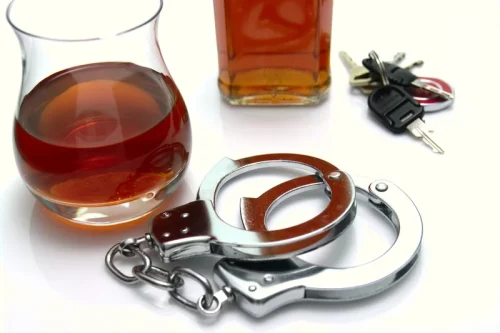
They find it difficult to put energy into anything that doesn’t serve them in some way. A covert narcissist might present themselves in a way that looks like they are giving, but their giving behavior always has the intent of getting something in return. It is not a coincidence that narcissists, in general, tend to gravitate toward interacting with caring and compassionate people.
Impact of Alcoholism on Narcissistic Behavior
Improving communication and understanding in a relationship with a Covert Narcissist and Borderline Personality Disorder (BPD) involves actively listening and validating each other’s perspectives. Given the challenges that can arise due to the dynamics of a Borderline personality and the tendencies of a Covert Narcissist, fostering effective communication is paramount. Prioritizing self-care and setting boundaries that prioritize our needs and happiness are paramount in maintaining our emotional health. Seeking support from therapists or support groups can provide valuable insights and coping strategies. Furthermore, those with BPD frequently exhibit intense and tumultuous relationships with others, marked by cycles of idealization and devaluation.
Unmasking Common Narcissistic Argument Tactics
“Covert narcissists get their attention in very subtle and sneaky ways, and they often may not even know that they’re doing this,” says Dr. Albers. If someone you know has alcoholic narcissist symptoms, don’t neglect your own needs. https://ecosoberhouse.com/ Being close with an alcoholic narcissist can be emotionally draining, and it’s crucial to take care of yourself. The narcissist-like behavior of some alcoholics may only be a result of their addiction—it may not be how they really are when sober. And while there are some links between alcoholism and narcissism overall, the connection isn’t as straightforward as some might think. Below, we’ll dive into just how strong the link between narcissism and alcoholism is, the similarities and differences of these disorders, and what to do if you or someone you love shares these traits.
Feelings of inadequacy
He presents a facade of being humble, of being modest, and free-facing even. He never seeks attention or adulation directly, but through other people. These treatments can help individuals achieve sobriety, promote personal growth, and establish healthier ways of relating to oneself and others. In order to shed light on the complex relationship between alcoholism and narcissism, it is important to first gain an understanding of these two conditions individually and how they intersect with one another. Lastly, vulnerable narcissism was a significant predictor of problem expectations. Though it is against our prediction, it covert narcissism and alcoholism isn’t completely surprising that vulnerable narcissists expect to experience problems.

Future Directions in Treatment and Research
People with covert narcissism, in particular, may seem to have empathy for others. They might seem willing to help others out or take on extra work. People with covert narcissism generally spend more time thinking about their abilities and achievements than talking about them. NPD typically involves insecurity and an easily damaged sense of self-esteem.
Importance of Dual Diagnosis Treatment
By understanding covert narcissistic parental alienation and being vigilant for signs of parental alienation, individuals can intervene early to protect the child’s well-being. It’s essential to seek support from friends, therapists, and support groups to navigate the complexities of covert narcissistic parental alienation. Since one of the hallmark traits of narcissistic personality disorder is lack of empathy, the covert narcissist is not going to be emotionally responsive to their partner in a healthy way. Relationships with alcoholic narcissists often involve a power imbalance and a lack of empathy towards their partners. The narcissistic tendencies of these individuals, such as an excessive need for admiration and a lack of consideration for others, are amplified by their alcoholism. This can lead to manipulative and controlling behaviors, as well as emotional and psychological abuse.

Personality disorders like NPD are those in which a person has a rigid and unhealthy pattern of thinking, functioning, and behaving. Substance use disorders like AUD are characterized by mental and physical addiction. And that’s why, of course, people under the influence of alcohol go to prison. The more behaviors they pathologize, the more behaviors they medicalize, the more they claim to find new diseases and new disorders, the more money there is from insurance companies. The dependence of some narcissists on substances becomes a way of life.
How to Recognize a Covert Narcissist
When triggers affect us, it’s crucial to identify their roots. Understanding what triggers a person is multifaceted and may involve past experiences or unmet needs. Sian Ferguson is a freelance health and cannabis writer based in Cape Town, South Africa. She’s passionate about empowering readers to take care of their mental and physical health through science-based, empathetically delivered information. Read more about living with a person who has AUD and managing a relationship with someone who has NPD. Support from loved ones can help people with NPD or AUD change their behavior and work toward recovery.
The Overt Versus the Covert Narcissist

This may be because low self-esteem is often the reason for these behaviors, as one study highlighted when looking at the connection between cyberbullying and covert narcissism. Like overt narcissism, covert narcissism may have roots in genetics, childhood trauma and learned behavior picked up from parents or other caregivers. One study investigated alcohol and narcissism in college students. The researchers found that grandiose narcissism, i.e., overt narcissism, was a positive predictor of alcohol consumption. People in this group were also less likely to see their alcohol use as a problem. While narcissism and alcoholism don’t always occur together, there are some reasons why narcissists might be more prone to developing an alcohol use disorder than the average person.
- Childhood rejection or experiences like child abuse and neglect are also linked to NPD 2.
- NPD can significantly impact personal relationships and professional life.
- They cheat on their loved ones, fiance, girlfriend, wife, they have sex with totally inebriated and intoxicated sexual partners.
- Narcissistic alcoholics frequently prioritize their own needs and desires above others.
- Setting and enforcing clear boundaries is essential to safeguarding your mental health and preventing the enabling of destructive patterns.
I mean, they are, it’s transitioning from the grandiose to the pathetic and the pathetic to the creepy. So these women are not technically indistinguishable clinically indistinguishable and easily diagnosable as psychopathic narcissists. Like everything else we do in life, eating, sex, binge watching of TV series, drinking and resorting to illicit drugs affect the body.